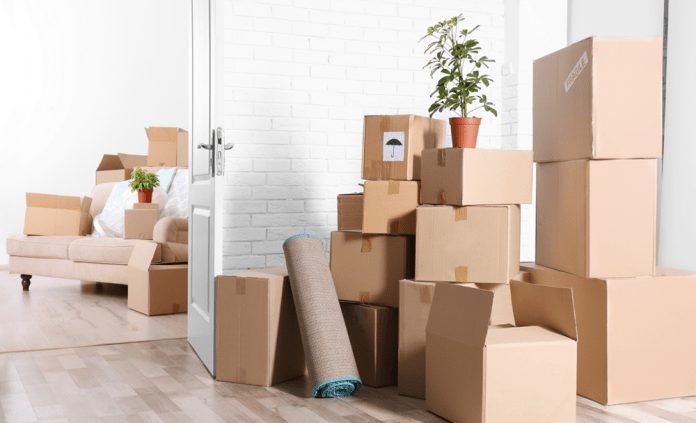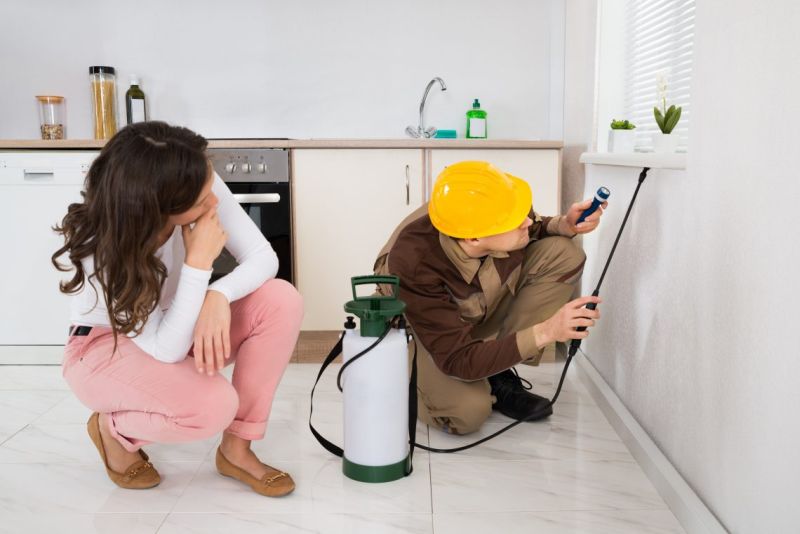Did you know that the average American moves 11 times in their lifetime? That’s a lot of packing supplies! Moving house is also considered to be one of the most stressful things you can do as an adult. It’s right up there with a loved one getting sick, or going through a divorce.
We spend some of our best moments at home, and it’s where we make some of our most meaningful memories. From spending time with our family to watching our kids grow up, a house or apartment is much more than just bricks.

Moving house represents a change or transition in our lives, and the lack of order and uncertainty can cause anxiety and stress in even the most well-balanced person. If we’ve lived somewhere for a long time, the idea of changing every part of our routine can feel overwhelming. If you’re moving out-of-state or to an unfamiliar place, it can feel even more daunting.
But like most things, you can reduce the stress and anxiety associated with moving by using the right tools to stay organized and informed.
Check out these top ten tips for managing your big move.
Scope Out The Neighborhood

If you’re looking for your dream home, it’s easy to focus on the details and not look at the big picture. If you’re worried about the kind of tile in the kitchen, or the square footage of the yard, all of these things matter — but the neighborhood matters equally, if not more.
If you have a beautiful home in a terrible neighborhood, you probably won’t manage to enjoy it for long. Safety is one of the most important details to consider when exploring a new neighborhood.
If you have kids, what are the schools like? If you have pets, is the area walkable and safe? You might love the restaurant and bar scene, and if that’s the case, you might want to make sure that you live near a bustling nightlife scene. Is there a church or religious center closeby that fits your family’s needs? Start off by making a list of the ideal characteristics of your perfect neighborhood and investigate.
You can’t always find out everything about an area with a simple Google search. It’s worth actually driving to your preferred location and walking around to get a good feel for the neighborhood. Another top tip is to also drive there at night if you feel safe to do so (and perhaps find somewhere else if you don’t). Some places can change dramatically from day to night, and if you see an abundance of sketchy people during the evening hours, it might be a sign that this isn’t the right place. If you want to do a night check on a place, bring a friend, and keep your doors locked and your windows up if you’re unsure about a place.
Check Out The Neighbors

Neighbors can make or break a house. If you find the perfect house in the perfect neighborhood, but you live next door to nightmare neighbors — it’s going to be a big problem. Did you know that you can find out who your neighbors are with a Reverse Address Lookup from Instant Checkmate?
With this service, you can actually open a background report on your potential neighbors. A background report includes vital information about those living near your family, like if they have any criminal records. You can even view social media profiles to see if they seem like they might be someone who you could be friends with.
Criminal records are obviously the most important factor to consider when looking at neighbors. If they have a ton of noise complaints listed against them — or worse — a violent and disturbing criminal record — it’s best to steer clear.
Work Out The Logistics

Planning your move in detail can help alleviate some of the stress when moving day comes. Are you planning on hiring professional movers? Make sure to check out their online reviews, and ask for a total quote. Often, a moving company will give you a quote for their minimum hours — but the actual move will take a lot longer. For instance, if a moving company gives you a quote for three hours, it’s always best to budget for double that time (or even triple) so you’re not hit with a surprise bill on the actual day.
There are many online tools that can help you calculate how long a move should take based on the size of your home. But it’s always smart to overestimate the time, rather than lowball it. Find out if a moving company charges extra for overtime. For instance, if they charge $600 for three hours, check the fine print. Every additional hour after that might be over $300 per hour — and that could really hurt your budget if you’re not expecting it.
If you’re anticipating doing the move yourself, you’ll need to figure out the cost of moving trucks, equipment, and it’s worth asking friends and family to see if they can help you out on the big day. It might even be worth factoring in an extra week in your current home so you have enough time to move without rushing.
Kids and Pets

It doesn’t matter if you hire a moving company or decide to do it yourself, if you have children or pets (or both) you’ll need to figure out how you’ll keep them safe come moving day.
If you have children, it’s worth exploring the option of getting a babysitter for the big day. Moving can be equally stressful for children, so if they can spend the day with Grandma or a hired babysitter, it can reduce their stress and yours. After all, you don’t want to be coordinating a hundred boxes and moving furniture while trying to entertain your kids.
Get A Pest Inspection

Many people make the mistake of getting a professional opinion when it comes to the structure and safety of their potential new home, but forget to call in pest control. This can lead to an unpleasant situation after they move in and discover some unwanted house guests.
Home inspectors look at factors like hazards, safety threats, or defects but they often overlook reporting on pest problems. If your new abode has a rampant cockroach infestation or termites, it could significantly change your moving-in costs.
If you can afford it, err on the side of caution and tent the house prior to moving in. Many older homes have pest problems, and you can avoid any potential problems with mice or cockroaches by tenting the house first.
Termites can cause significant damage to the structure of your home, which is why a pest inspection before closing can be a very important step in buying a home.


